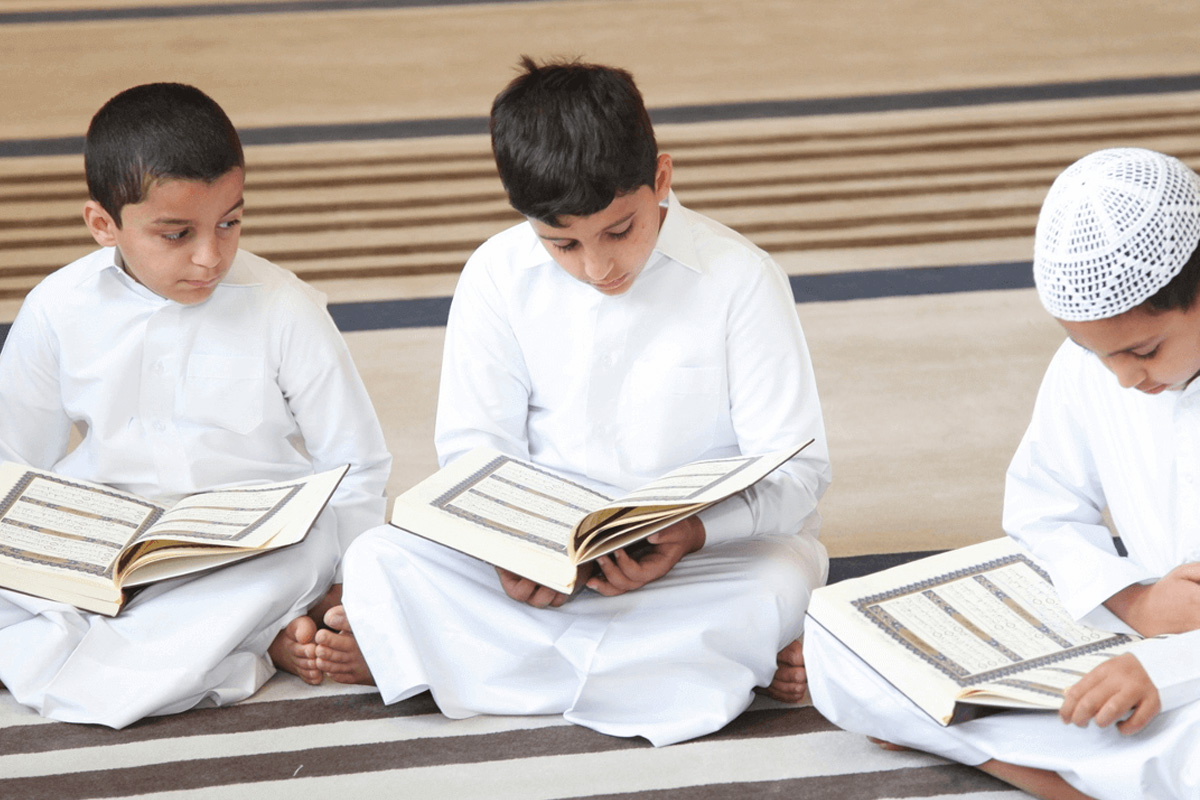- +201040914066
- info@quraaany.com


Let’s examine the purpose of tajweed and its significance, advantages, and more in more detail! The primary source of law in the Islamic Ummah is the Holy Quran, which is the exact word of Allah. Given its significance, learning the Quran with Tajweed needs to be a top priority in order to prevent any misunderstandings or ambiguities.
The purpose of tajweed
The exact words of Allah that He revealed as an unfailing source of laws for people to live by in orderly fashion are found in the Noble Quran. It includes references to the Hereafter as well as rules and advice regarding every facet of life. Because the Quran is so significant, it must be read, written, and recited accurately and clearly to avoid any misunderstandings or ambiguities.
Tajweed: What Is It?
The purpose of tajweed is to provide each letter its rightful place. To put it another way, it is a collection of guidelines that ensures you correctly pronounce every letter in the Quran along with the standards and traits that have to be applied to it. In our faith, the study of reading the Quran according to Tajweed norms is very significant and encompasses an entire area.

Is It Important to Learn Tajweed and Know the Purpose of tajweed?
Without a doubt, mastering Tajweed is essential for anybody hoping to accurately recite the Quran. To ensure that every word of the Quran is recited as intended, Tajweed entails learning the exact articulation and pronunciation of Arabic letters.
This precision meets the need to interpret the Quran with appropriate reverence and maintains its meaning. Continue reading to find out more about the purpose of tajweed.
The decision to use Tajweed whilst reading
In his well-known poem outlining the norms of Tajweed and the purpose of tajweed, Imaam Muhammad Ibn al-Jazari, may Allah have pity upon him, a renowned scholar of the Qur’an and Hadith of the ninth century, said:
“And it is absolutely necessary to apply Tajweed to the Qur’an. Whoever does not do so is a sinner.”
Applying the Tajweed guidelines is therefore required in order to avoid making any significant errors when reciting the Qur’an.
Two categories of errors that one may make when reciting the Qur’an have been distinguished by scholars:
- Explicit errors: these typically alter the meaning and alter aspects that are readily apparent.
- Hidden errors: this may need a study of Tajweed regulations.
Most scholars concur that Muslims who have memorized all or part of the Qur’an have an individual obligation (Fardh ‘Ayn) to apply the Tajweed rules in order to avoid the obvious mistakes, while Muslims have a collective obligation (Fardh Kifaayah) to apply the rules in order to avoid the hidden mistakes. In other words, some students of knowledge must be aware of that.
It is an established Sunnah (Prophetic tradition or practice) because the Qur’an was revealed with the Tajweed rules applied to it, and the Prophet, sallallaahu ‘alaihi wa sallam, recited it back to Jibreel in that manner, and his companions read it in that manner as well.
The types of errors within each category are displayed in the list below:
Explicit errors:
Errors pertaining to the proper pronunciation of letters to prevent their meaning from being altered by confusion. These should be avoided by both scholars and regular Muslims.
Hidden Mistakes:
Errors related to honing pronunciation that are not readily apparent. Only individuals who have studied Tajweed regulations or are subject-matter specialists are aware of these. Common Muslims might not be aware of these errors or think they are.
What is the principle purpose of tajweed?
The purpose of tajweed Every syllable in the Qur’an is from Allah, making it the word of Allah. It is important to take its recitation extremely seriously.
The main goal of the Science of Tajweed is to teach the reciter how to recite the Qur’an accurately, without exaggeration or inadequacy, while adhering to the rules and characteristics that apply to each letter.
Thus, in the classical Arabic dialect that it originated in, the reciter might recite the Qur’an in the manner of the Prophet (sallallaahu alaihi wa sallam), who got it from Jibreel, who received it from Allah (subhanahu wa ta’aala).
Every Arabic letter has its own Sifaat, or distinctive qualities, as well as a Makhraj, or exit or articulation point, in the mouth or throat from where it originates.
An essential component of Tajweed is being aware of each letter’s Makhraj and Sifaat. Sometimes the exits of two letters are so similar that it’s simple to mix them up.
Therefore, there is a risk that someone who is unfamiliar with the characteristics of each letter would misinterpret the meaning of the sentences when reciting the Qur’an. The reciter can avoid making errors when reciting the Qur’an by adhering to the Tajweed principles.
How to teach Tawheed to our children
Should we be required to read traditional writings and literature in order to educate our children Tawheed, or Islamic monotheism?
No, this is not necessary in the early years of their life since it calls for lengthy hours of focus and effort, which is challenging for young children.
One can accomplish this later in life when their comprehension level enables them to understand what is being read and said to them.
One can first express his desires by telling the stories of the Prophet’s companions, sallallaahu ‘alaihi wa sallam, who prioritized their faith and worship of Allah over their homes, families, and tribes. They emphasize that this was done because they realized that Allah created us specifically for the purpose of worshiping Him.

Read More: 10 Powerful dua for studying to Enhance Their Studying Skills
Conclusion about the purpose of tajweed
In conclusion about the purpose of tajweed, you should know that beyond its spiritual benefits, learning Tajweed improves our capacity to accurately teach and disseminate the Quran, enabling others to engage with it in a meaningful way. Those who study and teach the Quran are regarded as the best among us, as the hadith informs us.
We extend an invitation to you to start this Tajweed learning adventure, where you will improve your life and the lives of others around you by gaining knowledge as well as a strong spiritual bond with Allah’s teachings.
Tags: